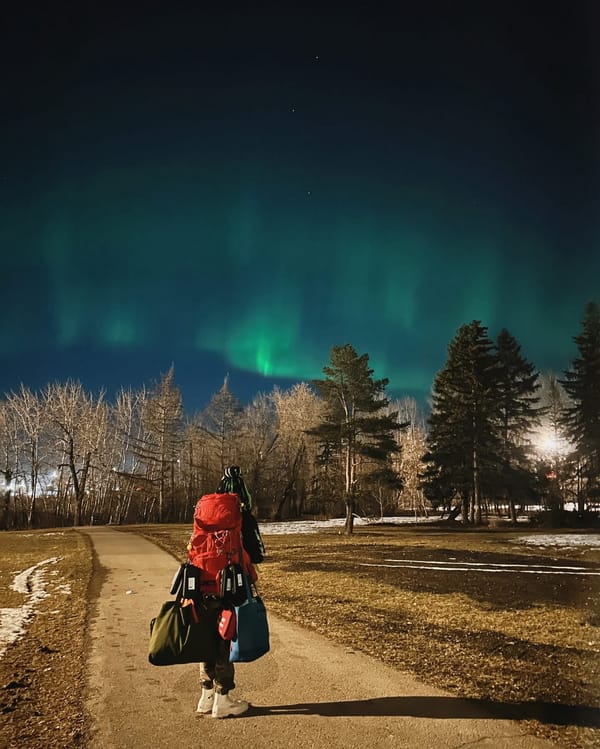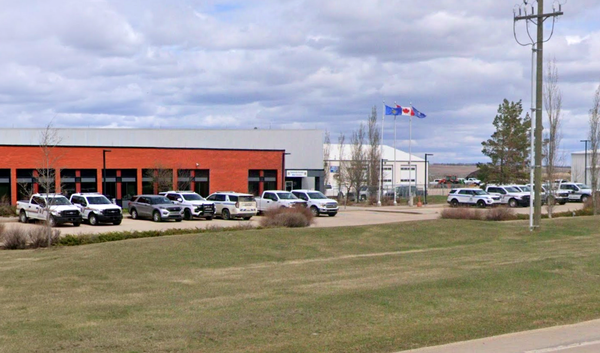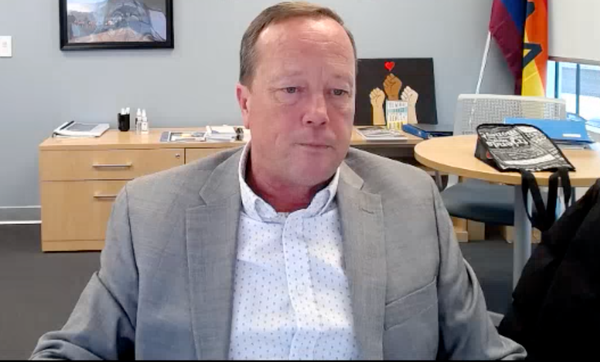“Appreciate the assist”: Oilers pass the puck as City and Police purge unhoused from homes
Documents reveal Edmonton Oilers executives pressured the City and Police to clear unhoused people from near Oilers property, weaponizing decampments and water station relocation to address safety concerns.
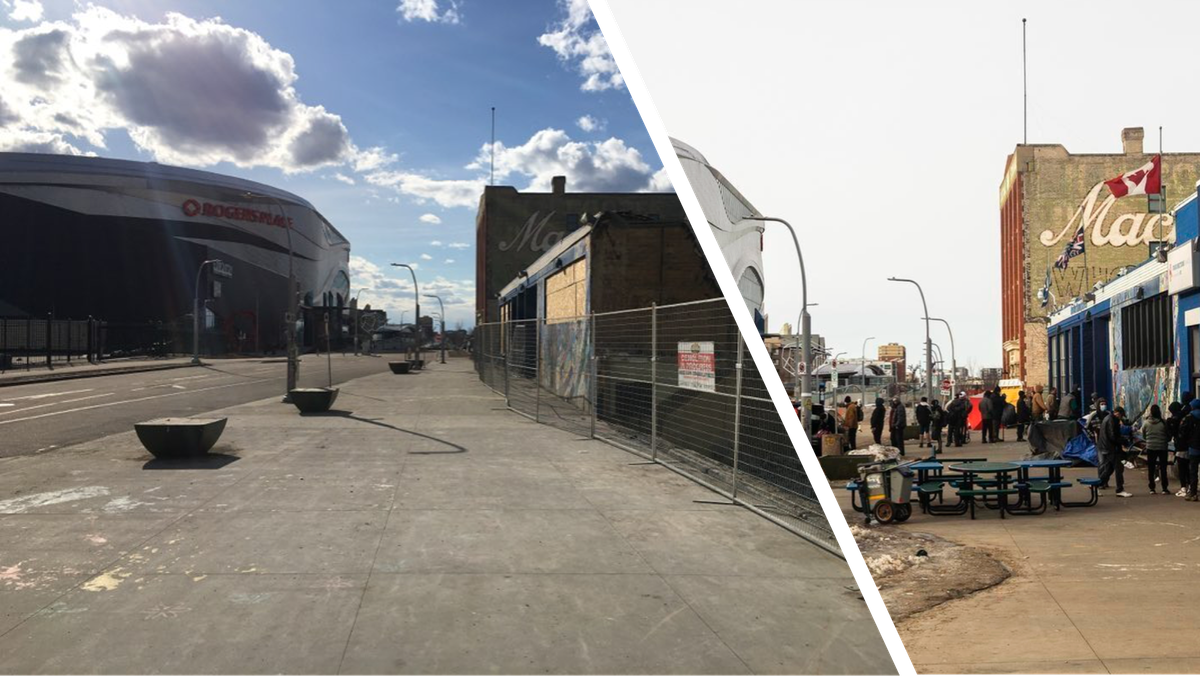
OEG Inc., the company that runs the Edmonton Oilers and ICE District entertainment venues, has pressured the City of Edmonton and its police to clear unhoused tent encampments, a ‘Native Healing Ground’ and even a water station from near its properties, according to documents obtained by Drug Data Decoded.
The documents were obtained through a freedom of information request submitted to the City of Edmonton on December 18, 2023 – three days after the City announced plans to mass-evict encampment dwellers across the Boyle-McCauley neighbourhood, adjacent to the ICE District on its northern and eastern boundaries.
Among the documents is an email from top brass at OEG to Edmonton police chief Dale McFee and city manager Andre Corbould. In their email, dated April 16, 2023, OEG expressed being “deeply concerned that the people attending [2023 National Hockey League playoffs] will not feel safe and the images being broadcast out to the sports world will not leave Edmonton and Alberta in a positive light.”
The OEG executive then made four requests to the police chief and city manager for additional police presence around their venues, near Boyle Street Community Services and throughout pedways and public corridors. Another request was for the “removal of the illegal tents situated on 105 Ave adjacent to the Fan Park,” and a sixth request was to “revisit the temporary closure of 104 Avenue to vehicle traffic.”
Two months later, after additional requests to remove tents, OEG asked for the relocation of a water station that was initially situated by the City near the ‘Fan Park,’ a previously empty lot developed by OEG to accommodate large crowds celebrating Oilers playoff hockey games and other outdoor events. This email request raised concerns about “safety and security” and unhoused people bathing on the border of OEG property. OEG noted that “the same issues” had occurred “at other locations,” a reference to the relocation of two water stations two weeks prior. In those situations, the City highlighted “notable increases in security incidents at those sites,” reported in complaints by staff at the library and police station located near the two water stations.
The Fan Park is across the street from Boyle Street Community Services, an unhoused drop-in and harm-reduction agency that was leasing its space from OEG for $1 per month after selling the building to them in 2021. The land sale was accompanied by millions in donations by OEG toward Boyle Street’s proposed King Thunderbird Centre several blocks north, including a $5 million ‘backstop’ in case Boyle Street came up short in its fundraising. OEG is now suing to avoid having to supply this money, on the grounds that Boyle Street did not give its “best efforts” to fundraising.
In the meantime, OEG got what it wanted: Boyle Street vacated the original facility in September 2023, dispersing its operations into smaller temporary sites.
"Cruel means of questionable legality"
Nearby, an empty parking lot owned by OEG’s parent company, Katz Group, was the site of an eviction of twelve individuals camping in seven tents on June 5, 2022. A police report obtained by Drug Data Decoded shows the police decampment operation included the removal of ten hand-made signs indicating ‘Native Healing Grounds’ around the camp.
According to the attending officer, the removal of the signs was done “to avoid an occupation or peace camp,” presumably a reference to Camp Pekiwewin, which sheltered hundreds of unhoused Edmontonians for several months until its forced closure by the City in November 2020. Under legal questioning, the supervising officer attempted to walk back the report's statement that "police removed the hand-made signs from the temporary fencing," asserting that "[the High-Risk Encampment Response Team] didn't remove the signs. It would have been City Ops that cleaned it up."
The report also mentions that “EPS has agent status for Katz Group properties.” Agent Status is an agreement between corporate entities and Edmonton police by which the police can enter premises uninvited on essentially any suspicion and issue trespass notices and tickets — and even conduct arrests — on behalf of the owner. Businesses that strike this devil’s bargain are identified by a sticker on their front entrance.
According to University of Alberta PhD candidate Rylan Kafara, whose studies focus on those excluded by gentrification in Edmonton’s inner city, some social agencies were coerced into adopting Agent Status.
Edmonton-based lawyer Chris Wiebe, who questioned the Edmonton police officer in charge of this encampment eviction, was approached for comment on the matter. Wiebe's response is provided here in full:
"The EPS' decision to take signs that read 'Native Healing Grounds' away from unhoused people during an encampment eviction from a Katz-owned lot is disturbing to me for two reasons.
First, it was likely illegal for EPS to take the signs. They evicted these encampment residents under the Trespass to Premises Act, but that Act did not give them legal authority to seize their personal property. For the EPS to seize the signs likely breached constitutional and quasi-constitutional laws that protected the encampment residents' rights to personal property and freedom of expression, including under the Canadian Charter of Rights and Freedoms, Alberta Bill of Rights, and the Alberta Personal Property Bill of Rights, not to mention the Criminal Code's prohibitions of theft and mischief.
Second, it appears that EPS' policy of responding to protest encampments includes seizing written expressions of Indigenous healing. This is yet another troubling example of how the EPS, the City, and the Katz Group use cruel means of questionable legality to displace Indigenous unhoused people from downtown Edmonton and reclaim it for the affluent class, who are disproportionately white."
Economics of exclusion
To Kafara, “the Oilers are being used in this replication of settler colonial logics and dispossession … to condition people to rally behind that sporting spectacle, instead of the things that can truly make the city world-class and great.” Validating this position, the documents indicate that the efforts to strip basic accommodations for tent dwellers likely accelerated further land development – a primary business interest of Katz Group.
On July 17, 2023, an OEG Director of Programming revealed how the company planned to erect a fence surrounding the Fan Park, with customer traffic directed through an entrance on the north side. However, the Director complained to City officials that “this is now blocked with tents and not possible.”
Then-City Manager Andre Corbould personally attended to this, assuring Oilers executive on August 10 that the City had “EPS, Bylaw, Fire, EMS, [Healthy Streets Operations Centre] and Operations all working to dismantle the encampment and deal with things.” He added that he was “trying to get as many [unhoused individuals] as possible to get to shelters and not come back but I cannot force them to go there.” (Several months later, Corbould would get his wish, overseeing mass-encampment evictions with unhoused occupants directed to a 'navigation centre,' with little evidence that low-barrier housing was made available.)
On August 14, OEG's Director of Operations followed up, relaying that “the City made great progress last week north of Rogers Place – unfortunately some of the people evicted are located now in the same spot.”
Two days later, a City official notified the OEG executive that “EPS will be on site tomorrow morning to move the tents out of the way for you to complete the fence installation. Let me know if you need anything else.” The Director of Operations replied, “I have advised our construction team. Appreciate the assist.”
According to Homeward Trust Edmonton, more than 60% of unsheltered people in Edmonton are Indigenous. Kafara suggests the use of fencing, development and police enforcement to segregate affluent settlers from unhoused people reflects a broader pattern of Indigenous displacement ongoing across Alberta since the arrival of the earliest settlers. Noting the mutualism between the Katz Group, the City and Edmonton Police, who, from the earliest stages of the ICE District community consultation, collectively distinguished the ‘shelter district’ from the ‘arena district,’ Kafara suggests that the purpose of the development was always “to bring [predominantly] affluent white people in and out of the arena, spending money.”
To Kafara, despite taxpayers taking on considerable debt to finance the arena, the benefits are lining the pockets of the Katz Group – at the expense of people never given a voice in the matter.
And benefits to the Katz Group extend beyond this revenue. The permitted demolition of the Boyle Street Community Services building, first reported by Drug Data Decoded, appears to be clearing the way for further development and annexation of land from underneath tents.
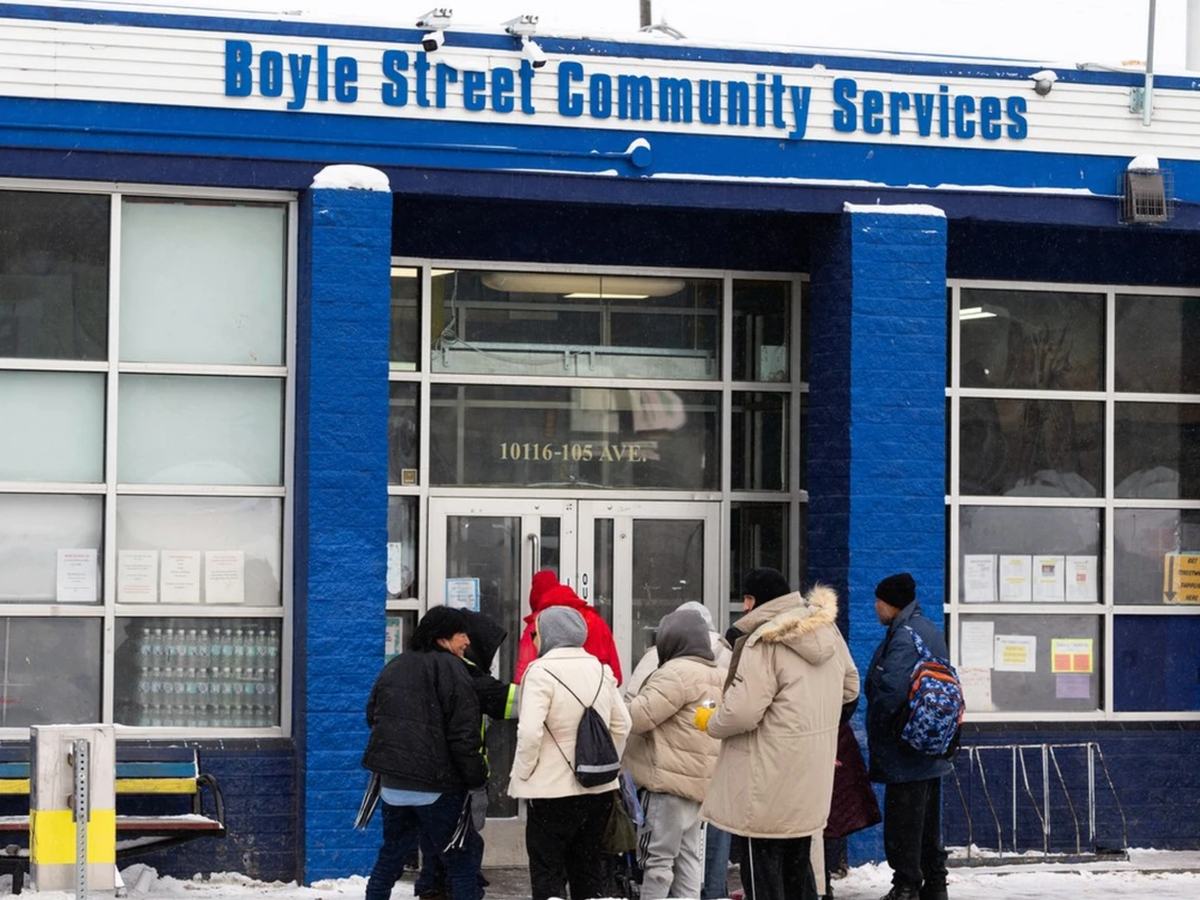
"It's becoming untenable"
Like many businesses and residents in the neighbourhood face-to-face with deepening structural neglect, OEG manages challenging situations while living on one side of these extremes. One incident, with details redacted for privacy, describes a situation that prompted an OEG executive to email the Edmonton police chief and city manager at 4:52 a.m. on July 19, stating that “it’s becoming untenable for us to host events in the Fan Park… Wanted to flag for you and ask/beg for help.”
The event in question was an international beach volleyball tournament held at the Fan Park on July 20-23, for which truckloads of sand were brought in. According to an outreach worker who spoke on condition of anonymity, the discovery of a syringe in the sand may have caused panic among event planners that competitors could be exposed to needle-stick injuries. A local agency was approached for its records, which also showed a syringe was found on OEG property around that time.
Through additional queries, Drug Data Decoded established that one drug poisoning death likely occurred in the vicinity that week. However, a sympathetic email that morning from a City tourism official to OEG is clearly not in response to a fatality: “This is extremely unfortunate to hear especially for this to happen on the third day on site. Our priority is for [redacted] to feel safe in our city.” A weapons violation and drug violation were found in Edmonton’s Community Safety Map on July 16, 2023, with few additional details. Staff at OEG who raised the concern were approached for comment at 8:50 a.m. on July 22, 2024. As of publication, a response has not been received.
These amicable conversations occur against a backdrop of devastation that is unfathomable to the average ICE District event-goer. The Oilers' unhoused neighbours survive midwinter tent evictions, disaster-zone disease outbreaks and structural neglect so deep, they are at nearly 500X greater risk of drug poisoning death than their housed counterparts, according to proxy indicators.
While members of the Alberta government, including its Public Safety Minister, accept free playoff tickets from the Oilers, Kafara worries that the steady pattern of corporate influence on the City’s management of its most threatened citizens serves a hidden purpose: “We’re replicating settler-colonial logics of elimination, displacement and dispossession of Indigenous people and reproducing racial capitalism.”
Fan Park crowds may not wear this line on their jerseys anytime soon, but with bread and circuses being trucked in for the most affluent, Kafara asks them to consider why the City cannot accommodate tents for people corralled into these vanishing spaces.
As MacEwan University political scientist Marielle Papin portended after the City removed water stations in July 2023, “it seems right now they are more focused on safety than social inclusion … but really if we tackle social inclusion, at its core we are also dealing with the question of safety.”
FOIP documents cited in this piece are available to media on request. Additional tips can be sent to info@drugdatadecoded.ca.
Drug Data Decoded provides analysis on topics related to prohibitionist drug policy using news sources, publicly available data sets and freedom of information submissions, from which the author draws reasonable opinions. The author is not a journalist.



